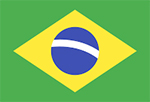Traditional Food, Music, and Folk Dance Highlight the End of the First Cultural Workshop Cycle

The program will offer two more activity cycles before the end of the year, featuring new workshops and opportunities to sell handmade products; These activities are part of the Cultural Groups Support Program under the Socio-urban Action Plan (PAS).
Maceió, September 23, 2025 - A lively fair with cultural performances, music, crafts, and traditional foods celebrated the conclusion of the first cycle of workshops from the Cultural Groups Support Program, carried out as part of the Socio-urban Action Plan (PAS). The event took place this past weekend in Chã da Jaqueira, bringing together local residents and visitors to enjoy and honor the local traditions.
The workshops not only helped participants develop new skills but also created opportunities for additional income. They served as spaces for social interaction, knowledge exchange, and strengthening community ties, moments that, particularly for many women, make these traditions part of everyday life.
Participation of Over 160 Community Members
The first cultural cycle focused on preserving intangible heritage and transmitting knowledge connected to São João traditions. More than 160 people from the communities of Bom Parto, Chã de Bebedouro, Chã da Jaqueira, Vila Saem, and the Menino Jesus de Praga Parish participated in workshops on traditional foods, regional forró dances, and making and customizing costumes and decorations for the June festivities. Two more workshop cycles are scheduled before the end of the year - one centered on Children's Day and another on Christmas.
"For me, it was wonderful. I used to stay home a lot, alone, and this was such a great experience. We made friends, helped each other, and now I'm earning a little extra income, which really helps with household expenses," said Maria de Melo, who participated in the cooking workshops.
Lucimar Santos led the cooking sessions, teaching participants how to prepare traditional dishes such as canjica, a corn cake, and savory pies. She mentioned the joy of seeing people apply what they learned: "Watching them put our lessons into practice is priceless. The support we received made it possible to offer this experience to the community. Food is such a part of our culture, but few people knew how to make canjica. Passing on this knowledge through the workshops and helping participants earn income was incredibly rewarding. It even moves me emotionally," she said.
Special Performances by the Groups Coco de Roda Reviver and Pastoril Estrela de Belém
The local communities' folk culture was presented at the event by the groups Coco de Roda Reviver, winner of the 2025 Municipal Coco de Roda Contest, and Pastoril Estrela de Belém, from Chã da Jaqueira.
Carmelita Alves, a member of Pastoril, took part in the workshops and performed alongside young dancers at the festival. "It was a real moment of cultural renewal for us. Joining the workshops was important to showcase our traditions. Now that the young people have seen what we do firsthand, they want to participate. I'm thrilled," she said.
Cultural Cycles
The cultural cycles were designed in partnership with local communities and cultural committees in each neighborhood. A total of 45 free themed activities are planned. Residents interested in joining the workshops can contact the community monitors on their local cultural committees.
The upcoming cycles will feature Children's Day activities, including workshops on healthy snacks, African dance, educational toy-making, and traditional puppet theater. For the Christmas cycle, participants can expect workshops on seasonal foods, regional dances, crafts, and holiday decorations.
Culture in PAS
The Cultural Support Program also encourages grassroots folk culture groups from neighborhoods affected by relocation, including traditional dance groups, such as coco de roda, quadrilhas, guerreiro, and pastoril. Launched in December 2023, the program supports these groups by providing resources such as choreographers, costume designers, musicians, costumes, instruments, sound equipment, and operational assistance for rehearsals and transportation.
PAS also includes other cultural and heritage initiatives. A funding call for cultural productions will be launched later this year, alongside projects to create cultural and identity spaces and develop a cultural memory archive. Previous actions include the Inventory of Intangible Cultural Heritage in the neighborhoods of Mutange, Pinheiro, Bebedouro, Bom Parto, and Farol, carried out by specialists from Fundação Universitária de Desenvolvimento de Extensão e Pesquisa (University Foundation for Extension and Research Development), Fundepes/UFAL.
The initiatives in the Socio-urban Action Plan (PAS) are part of measures defined under the Socio-Environmental Agreement signed by the Federal Public Ministry (MPF) and Braskem, with participation from the State Public Ministry (MPE) and support from the Municipality of Maceió.


 EN
EN

